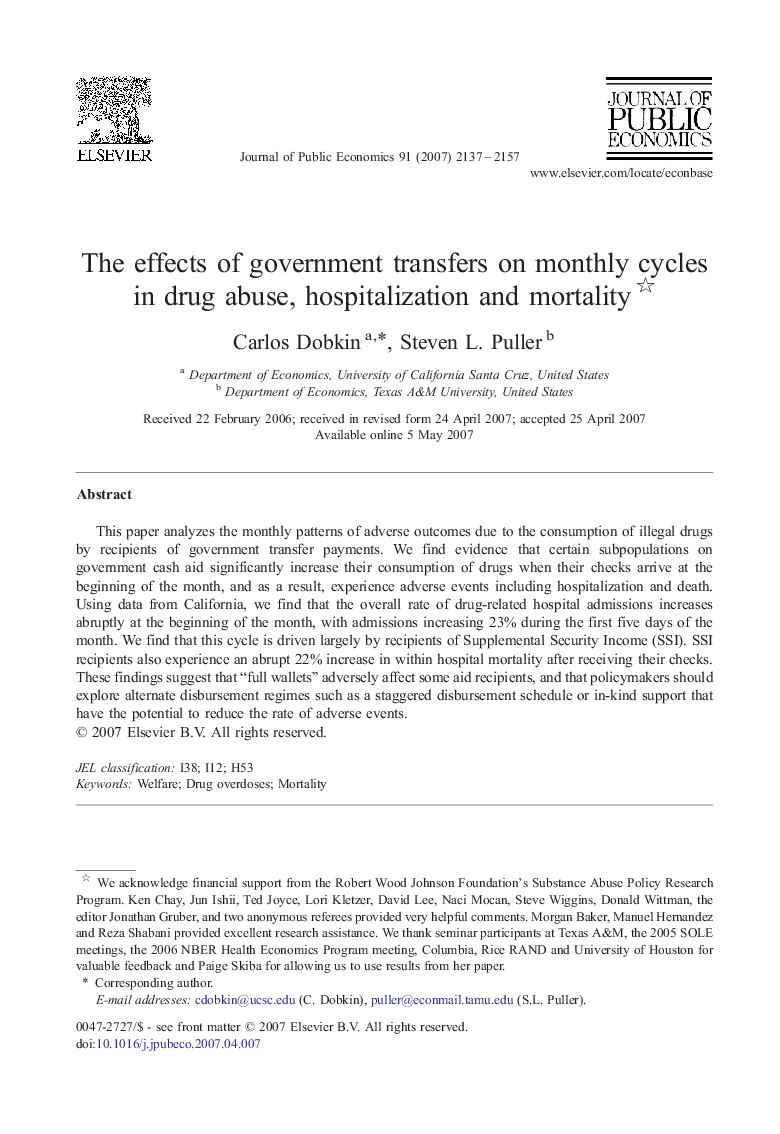| Article ID | Journal | Published Year | Pages | File Type |
|---|---|---|---|---|
| 970301 | Journal of Public Economics | 2007 | 21 Pages |
This paper analyzes the monthly patterns of adverse outcomes due to the consumption of illegal drugs by recipients of government transfer payments. We find evidence that certain subpopulations on government cash aid significantly increase their consumption of drugs when their checks arrive at the beginning of the month, and as a result, experience adverse events including hospitalization and death. Using data from California, we find that the overall rate of drug-related hospital admissions increases abruptly at the beginning of the month, with admissions increasing 23% during the first five days of the month. We find that this cycle is driven largely by recipients of Supplemental Security Income (SSI). SSI recipients also experience an abrupt 22% increase in within hospital mortality after receiving their checks. These findings suggest that “full wallets” adversely affect some aid recipients, and that policymakers should explore alternate disbursement regimes such as a staggered disbursement schedule or in-kind support that have the potential to reduce the rate of adverse events.
